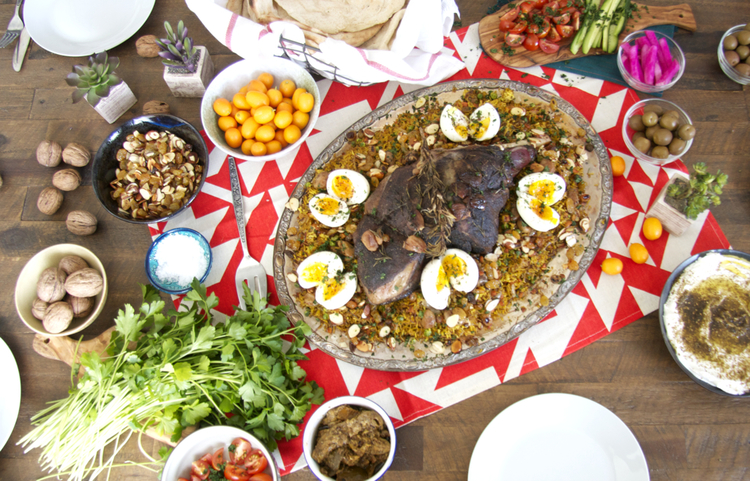Introduction: Iraqi Cuisine
Iraqi cuisine is a reflection of the country’s rich culture and history. Its cuisine is a blend of various cultural and religious influences, making it unique and diverse. The cuisine has been influenced by the Arab, Persian, Turkish, and Kurdish cultures, among others.
Iraqi cuisine is characterized by its rich flavors and textures. It is often centered around rice, vegetables, meat, and spices. Iraqi cuisine is also known for its use of herbs and spices, which adds depth and complexity to the dishes.
Religious and Cultural Influences
Islam is the dominant religion in Iraq, and as such, it has a significant influence on the country’s cuisine. For instance, pork is not consumed in the country as it is considered haram (forbidden) in Islam. Halal dietary laws are also observed in the country, which means that meat must be slaughtered in a specific way.
Iraqi cuisine is also influenced by the country’s cultural diversity. For instance, the Kurdish community in the country has its own unique cuisine, which is heavily influenced by the region’s geography and climate.
Key Ingredients and Spices
Some of the key ingredients in Iraqi cuisine include rice, lamb, chicken, fish, vegetables, and legumes. Some of the commonly used spices include cumin, coriander, cardamom, cinnamon, and saffron. Herbs such as mint, parsley, and cilantro are also widely used in the cuisine.
Common Dietary Restrictions and Considerations
As mentioned earlier, pork is not consumed in Iraq due to religious reasons. Additionally, alcohol is not widely consumed in the country due to its Islamic influence.
There are also some dietary considerations that need to be taken into account when consuming Iraqi cuisine. For instance, some dishes may contain nuts or dairy, which may cause allergies in some people. It is also important to note that some dishes may be high in salt or fat, which may not be suitable for individuals with certain health conditions.
Vegetarian and Vegan Options
Vegetarian and vegan options are available in Iraqi cuisine. Some of the popular vegetarian dishes include dolma (stuffed grape leaves), falafel (deep-fried chickpea balls), and hummus (a dip made from chickpeas). Vegan options include dishes such as tabbouleh (a salad made with parsley, mint, bulgur wheat, and tomatoes) and baba ghanoush (a dip made from roasted eggplant).
Conclusion: Enjoying Iraqi Cuisine with Care
In conclusion, Iraqi cuisine is a reflection of the country’s rich culture and history. While there are some dietary restrictions and considerations to take into account, there are still plenty of delicious dishes to enjoy. Whether you are a meat-lover or a vegetarian, there is something for everyone in Iraqi cuisine. Just be sure to enjoy it with care.

